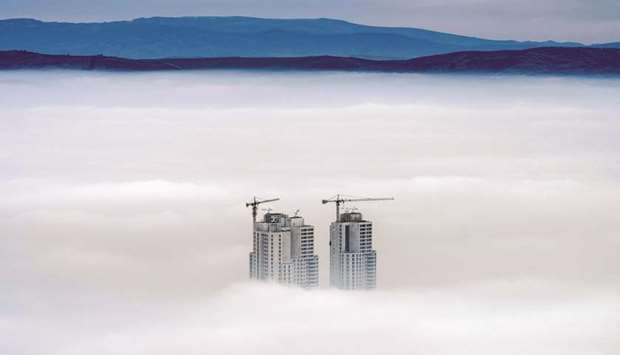Skopje was gripped on Friday for the second day by a cloud of polluted air and fog which practically paralysed the Macedonian capital and perturbed air traffic.
On the Skopje streets, numerous citizens were wearing masks in a bid to protect themselves while the visibility was poor.
Mask stocks were emptied, local media reported.
According to a World Health Organisation (WHO) study, published in early 2017, Skopje, which is located at the bottom of a valley, was among 10 cities in Europe with the highest concentration of fine particles.
Skopje, like the four other Balkans cities listed among the 10, has an industry based on coal or lignite, used also for heating.
Last winter, the situation was critical for two weeks.
On Friday, the quantity of fine particles was 500 micrograms per cubic metre of air, or 10 times higher than recommended by the WHO.
Due to the pollution and fog, the authorities limited air traffic since Thursday afternoon, without numerous flights being cancelled or diverted.
Skopje’s Social Democratic mayor Petro Silegov called the citizens to “change their habits, walk or use public transport”.
The measures undertaken by the authorities “cannot immediately yield results”, he said.
On social networks, the citizens were describing the situation as “really horrifying” and some called for a protest to be held Saturday under the slogan “Stand up for clean air”.
On Facebook some parents said that “being fully aware”, they had decided not to send their children to school until the air will be cleaner.
“The citizens are demanded not to breed until spring,” a Skopje resident commented ironically.
“The capital is more polluted than India or China,” the right-wing main opposition VMRO-DPMNE party said.
“What ideas do you have for cleaner air in Macedonia?” the United States embassy in Macedonia asked on Twitter.
“As our friends from US embassy are searching for ideas for the air pollution in Macedonia we want to help with a solution. Turkish Stream,” replied the Russian embassy, referring to a gas pipeline through Turkey that would enable Balkan countries to get Russian gas.

A picture taken from Vodno mountain yesterday shows the tops of some of the city’s highest buildings in an area with a high level of air pollution in Skopje. Skopje was affected yesterday, for the second day in a row, by air pollution that almost paralysed the capital.
